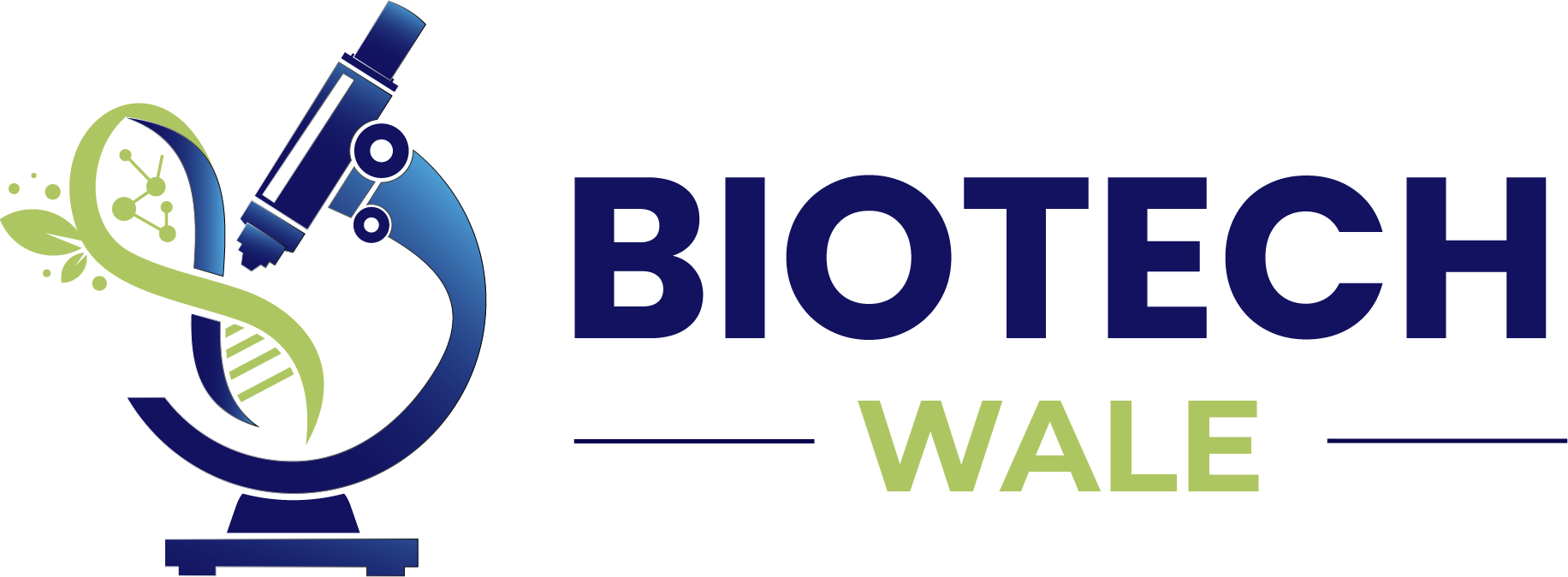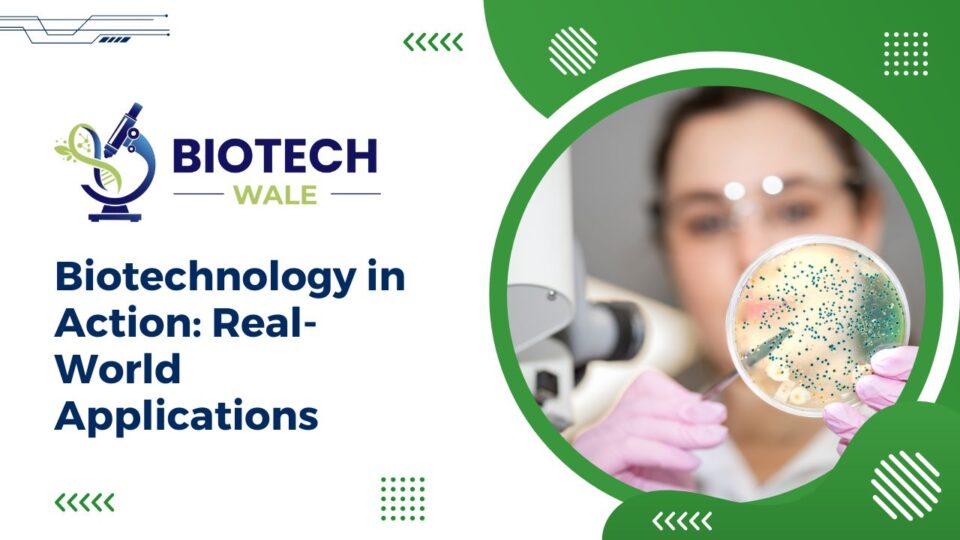Introduction to Biotechnology
Welcome to the exciting world of biotechnology, where science fiction meets reality! From curing diseases to revolutionizing agriculture, biotechnology is at the forefront of innovation. Join us as we explore the incredible real-world applications of this cutting-edge field that is shaping our future in ways we never thought possible.
Advancements in Medicine and Healthcare
Biotechnology has revolutionized the field of medicine and healthcare, bringing about groundbreaking advancements that were once considered science fiction. Gene therapy, for instance, offers the potential to treat genetic disorders by replacing faulty genes with healthy ones. This innovative approach opens up possibilities for curing diseases at their root cause.
In drug development and delivery, biotechnology plays a crucial role in creating more targeted and effective treatments with fewer side effects. The ability to tailor medications to individual needs based on genetic makeup is a game-changer in personalized medicine.
Stem cell research holds promise for regenerative medicine by harnessing the body’s own repair mechanisms to treat conditions like spinal cord injuries or diabetes. These cutting-edge therapies have the potential to transform how we approach healing and recovery in the future.
The intersection of biotechnology and healthcare continues to push boundaries, offering hope for improved patient outcomes and quality of life.
A. Gene Therapy
Gene therapy is a groundbreaking field within biotechnology that focuses on treating genetic disorders by manipulating the patient’s genes. Through innovative techniques, scientists can insert, modify, or delete specific genes to correct mutations that cause diseases.
One of the most promising aspects of gene therapy is its potential to provide long-term solutions for inherited conditions such as cystic fibrosis, muscular dystrophy, and sickle cell anemia. By targeting the root cause of these disorders at the genetic level, researchers aim to offer patients a chance at improved quality of life and even potential cures.
Although still in early stages, gene therapy has shown remarkable results in clinical trials for various diseases. With continued research and advancements in technology, this cutting-edge approach holds great promise for revolutionizing the future of medicine and healthcare.
B. Drug Development and Delivery
In the realm of biotechnology, drug development and delivery have seen remarkable advancements. Scientists are constantly working on innovative methods to create safer and more effective medications for various diseases.
One significant area is targeted drug delivery, where drugs are designed to reach specific cells or tissues in the body, minimizing side effects and maximizing efficacy. This precision medicine approach holds great promise in personalized treatment plans.
Moreover, biotechnological techniques like CRISPR-Cas9 gene editing are revolutionizing the way new drugs are developed. By precisely modifying genes associated with diseases, researchers can create tailored therapies that target underlying genetic causes.
Nanotechnology plays a crucial role by enabling the delivery of drugs at a microscale level, enhancing their absorption and bioavailability within the body. Such cutting-edge technologies pave the way for more efficient drug development processes with improved patient outcomes in mind.
C. Stem Cell Research
Stem cell research is a fascinating field within biotechnology that holds immense promise for the future. These remarkable cells have the potential to develop into different types of cells in the body, offering hope for treating a wide range of diseases and injuries.
One exciting application of stem cell research is in regenerative medicine, where these cells can be used to repair or replace damaged tissues and organs. This could revolutionize treatments for conditions such as heart disease, Parkinson’s, and spinal cord injuries.
Moreover, stem cells hold great potential in personalized medicine, allowing for tailored treatments based on an individual’s unique genetic makeup. By understanding how stem cells work and harnessing their regenerative abilities, scientists are paving the way for groundbreaking medical advancements.
The ethical implications of stem cell research continue to spark debate, but with careful regulation and oversight, this field has the power to transform healthcare as we know it.
Environmental Impact of Biotechnology
Biotechnology is not just about advancements in medicine and industry; it also plays a crucial role in addressing environmental challenges. One key area where biotechnology shines is sustainable agriculture. Through genetic modification, crops can be made more resilient to pests and diseases, reducing the need for harmful pesticides.
Biofuels are another exciting development that stems from biotechnology. By using biological processes to convert organic matter into fuel, we can reduce our dependence on fossil fuels and lower carbon emissions. This innovation holds promise for a greener future.
Waste management is yet another field where biotechnology shows its potential. Microorganisms can be harnessed to break down pollutants in soil and water, aiding in cleaning up contaminated sites effectively.
The impact of biotechnology on the environment is vast and varied, offering solutions that are both innovative and sustainable.
A. Sustainable Agriculture
When it comes to sustainable agriculture, biotechnology plays a crucial role in revolutionizing the way we grow our food. By harnessing genetic engineering techniques, scientists can develop crops that are more resilient to pests and diseases, reducing the need for harmful pesticides.
Furthermore, biotechnology allows for the creation of crops with enhanced nutritional content, addressing global malnutrition issues. These genetically modified organisms (GMOs) have the potential to increase crop yields while minimizing environmental impact.
Another exciting development in sustainable agriculture is the use of bio-fertilizers and bio-pesticides derived from beneficial microorganisms. These natural alternatives help improve soil health and reduce reliance on synthetic chemicals.
Biotechnology offers innovative solutions to enhance agricultural productivity while promoting sustainability and environmental stewardship.
B. Biofuels
Biofuels are a fascinating application of biotechnology that holds great promise for a more sustainable future. By utilizing biological organisms to produce fuel, biofuels offer an eco-friendly alternative to traditional fossil fuels. One common type of biofuel is biodiesel, which is derived from crops like soybeans or algae. These renewable sources can help reduce greenhouse gas emissions and lessen our dependence on finite resources.
Another type of biofuel is ethanol, typically made from corn or sugarcane. Ethanol can be blended with gasoline to create a cleaner-burning fuel for vehicles. This reduces carbon emissions and helps combat climate change. Additionally, the production of biofuels supports agricultural communities by creating new markets for their crops.
Biofuels represent a significant step towards a greener energy landscape and demonstrate the power of biotechnology in addressing environmental challenges.
C. Waste Management
When it comes to waste management, biotechnology plays a crucial role in transforming how we handle and dispose of waste. By utilizing biological processes, biotechnology offers innovative solutions for treating various types of waste effectively.
One exciting application is using microorganisms to break down organic matter in landfills or wastewater treatment plants. These microbes help accelerate the decomposition process, turning waste into valuable byproducts like compost or biofuels.
Biotechnological advancements have also led to the development of methods for converting non-biodegradable plastics into biodegradable forms through enzymatic degradation. This approach shows promising potential for reducing plastic pollution and its harmful impact on the environment.
Moreover, biotechnology enables the extraction of valuable resources from waste streams, such as recovering metals from electronic waste or producing energy from organic residues. These sustainable practices contribute to minimizing environmental pollution while maximizing resource efficiency.
Innovations in biotechnology continue to drive progress towards creating a cleaner and more sustainable future through efficient waste management solutions.
Industrial Applications of Biotechnology
Biotechnology isn’t just about medicine and the environment – it also plays a crucial role in various industries. Companies are harnessing biotech to improve manufacturing processes, creating more efficient and sustainable production methods. By utilizing biological systems like enzymes or microorganisms, industries can reduce waste and energy consumption while boosting output.
The concept of bioremediation is gaining traction in industrial settings, where organisms are employed to clean up pollutants from soil or water. This innovative approach offers a natural alternative to traditional cleanup methods, benefiting both businesses and the environment simultaneously.
Moreover, biotechnology is revolutionizing how we approach waste management in industrial sectors. Through bioconversion techniques, organic waste can be transformed into valuable products like biofuels or biochemicals instead of ending up in landfills.
The integration of biotechnology into industry not only enhances efficiency but also paves the way for a more sustainable future with reduced environmental impact.
A. Manufacturing and Production Processes
Biotechnology has revolutionized manufacturing and production processes across various industries. By harnessing the power of biological systems, companies can now create more sustainable and efficient methods for producing goods.
One key area where biotechnology shines is in bio-based materials. Instead of relying solely on traditional manufacturing techniques that often contribute to environmental degradation, biotech allows for the development of eco-friendly alternatives such as bio-plastics and biodegradable packaging.
Moreover, the use of enzymes and microorganisms in industrial processes has led to reduced energy consumption and waste generation. This not only benefits the bottom line but also helps minimize the ecological footprint of manufacturing activities.
Biotechnology’s impact on manufacturing and production is undeniable, paving the way for a more sustainable future where efficiency goes hand in hand with environmental responsibility.
B. Bioremediation
Bioremediation, a fascinating application of biotechnology, involves using living organisms to clean up contaminated environments. Picture this: bacteria munching away on oil spills or fungi breaking down harmful chemicals in soil. It’s like nature’s own cleanup crew at work.
By harnessing the power of microorganisms, bioremediation offers a sustainable and eco-friendly solution to environmental pollution. Instead of relying on harsh chemicals or mechanical methods, we can now let these tiny helpers do the dirty work for us.
From oil spills to industrial waste sites, bioremediation has been successfully employed in various scenarios worldwide. It’s a promising technology that not only restores damaged ecosystems but also reduces the long-term impact of human activities on the environment.
As we continue to explore and refine bioremediation techniques, we are paving the way for a greener and more sustainable future. Letting nature take care of its own mess may just be the key to balancing our impact on the planet.
Ethical Considerations in Biotechnology
When discussing biotechnology, ethical considerations play a crucial role in shaping its impact on society. One of the key debates revolves around genetic engineering and the manipulation of DNA. Questions arise about the implications of altering an organism’s natural genetic makeup and the potential consequences it may have on future generations.
Another ethical dilemma in biotechnology is related to stem cell research, particularly embryonic stem cells. While these cells hold immense therapeutic potential, their extraction from embryos raises moral concerns for some individuals due to beliefs about the sanctity of life.
Furthermore, issues surrounding access to biotechnological advancements also come into play. The disparity in healthcare systems globally raises questions about who benefits from these innovations and how they can be made more accessible to marginalized populations.
As we navigate through the rapidly evolving field of biotechnology, it is essential to continue having open discussions and considering diverse perspectives on the ethical implications of our actions.
Future Possibilities
As we look towards the future of biotechnology, the possibilities are truly endless. Scientists and researchers are constantly pushing boundaries to discover new ways in which biotech can revolutionize our world.
One exciting area of growth is personalized medicine, where treatments can be tailored to an individual’s genetic makeup for more effective results. Imagine a future where diseases can be treated based on your unique genetic code!
Advancements in synthetic biology could lead to engineered organisms that produce sustainable materials or even clean up environmental pollution autonomously. The potential for bio-based products is vast and could pave the way for a greener future.
Additionally, developments in CRISPR technology may open doors to editing genes not just in humans but also in plants and animals, offering solutions to food security challenges and biodiversity conservation efforts.
Innovation in biotech holds promise for enhancing human health, protecting the environment, and improving various industries. The horizon seems bright with endless opportunities waiting to be explored!
Conclusion
In a world where scientific breakthroughs are shaping the future, biotechnology stands at the forefront of innovation. From transforming healthcare with gene therapy and stem cell research to revolutionizing agriculture with sustainable practices, the applications of biotechnology are vast and impactful.
As we look ahead, the possibilities seem endless. With ongoing advancements in technology and research, biotechnology is poised to continue making significant strides in various fields. However, it is essential to approach these developments ethically and responsibly, taking into account the potential consequences and implications they may have on society and the environment.
Biotechnology has proven itself to be a powerful tool for progress and change. By harnessing its capabilities effectively, we can address some of the most pressing challenges facing our world today and pave the way for a brighter tomorrow. The future of biotechnology holds promise for continued innovation and improvement across diverse industries, offering hope for a more sustainable and healthier planet for generations to come.





Average Rating